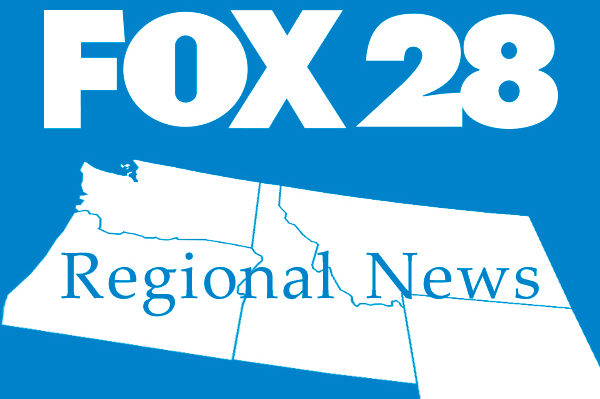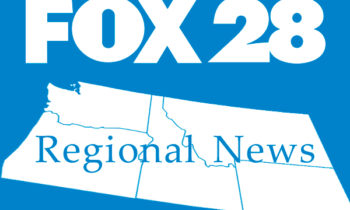
DENVER (AP) — A national campaign is backing ballot measures in six states to end partisan primaries, seeking to turn down the temperature in a polarized country by removing a process that gives the most active members of both major parties an outsize role in picking the country’s leaders.
The $70 million effort to replace traditional primaries with either nonpartisan ones or ranked choice voting is run by Unite America, a Denver organization dedicated to de-polarizing the country.
“People are losing faith in democracy itself,” said Kent Thiry, the group’s co-chair and the former chief executive officer of the kidney dialysis firm DaVita Inc, during a Denver debate about the initiative on the Colorado ballot.
Nick Troiano, Unite America’s executive director, said the goal is to end a system where 85% of congressional seats are effectively filled in partisan primaries because the districts are so overwhelmingly Democratic or Republican that whoever wins the relevant primary is virtually guaranteed victory in November.
Troiano said the Republican congressmen who voted to overturn the 2020 election after the Jan. 6, 2021, attack on the U.S. Capitol almost all represented noncompetitive districts and have had to answer only to their party’s voters.
Supporters are excited at the breadth of the campaign.
“It’s eclipsed by the presidential election, but this is the most important year for this sort of structural reform that I can recall,” said Edward Foley, a law professor at Ohio State University.
But some skeptics contend that changing the structure of primaries won’t make much of a difference in polarization given how so much of the country lives in either heavily Democratic or heavily Republican communities — and will naturally elect people who occupy those ideological extremes.
“It seems like it’s adding political complexity, weakening political parties, and it’s not clear what problem they’re solving,” said Lee Drutman of the New America Foundation in Washington, D.C.
The ballot measures include proposals to switch to ranked choice voting in reliably Democratic Colorado, evenly divided Nevada and two reliably Republican states where a sharp swing to the right among GOP primary voters have left traditional Republicans scrambling — Idaho and South Dakota.
Swing-state Arizona and conservative Montana both have measures to shift from partisan primaries to nonpartisan ones. In deep blue Oregon, an initiative would allow parties to still run their own primaries but require them to use ranked choice voting in certain statewide and federal races.
The ballot initiatives come as an unusual number of measures affecting voting are on state ballots in November.
Eight states will consider conservative-led measures to ban voting by noncitizens, which is already illegal under federal law. Connecticut voters will decide whether to allow anyone in their state to vote by mail, and Ohio whether to have a nonpartisan commission draw their state’s legislative lines.
The biggest change in U.S. elections could come from increased adoption of ranked voting. It requires every voter to rank candidates in order of preference. If one does not get a majority, the lowest-scoring candidate is eliminated and that politician’s votes are reallocated to whoever their voters picked second. This continues until one candidate wins more than 50% of the vote.
Ranked voting is a more complex way of running elections that is touted as producing winners who better represent the whole electorate. The process is used in two states — Alaska and Maine — as well as a handful of cities such as New York and San Francisco.
It allowed a Democrat, Rep. Mary Peltola, to win the race for Alaska’s single congressional seat in 2022 even as the state’s GOP governor and senator also won re-election. That result angered many Republican activists, who then pushed bans on the process in Republican-controlled states such as Florida and Tennessee. Now, even as additional states consider adopting ranked voting, Alaska voters will consider a ballot measure to repeal it.
Critics contend the campaign to attack partisan primaries is an effort to mute the voices of ideologically committed voters.
“This is trying to bring centrism back,” said Jason Lupo, a conservative political strategist in Colorado who opposes the measure in that state, during a recent debate in Denver. “This is a way to eliminate progressives; this is a way to eliminate conservatives.”
Critics also warn the proposed changes come as conservatives have become more distrustful of election processes following Trump’s lies about fraud costing him the 2020 race.
“It does make elections more complicated, and that in turn makes elections harder to trust,” said Trent England, the founder of the conservative group Save Our States, during a recent debate on the Idaho ballot measure. “Do we really think that now is the time to be doing that?”
Still, advocates of the ballot measures contend that something has to change.
Chuck Coughlin, a veteran Republican strategist in Arizona who used to work for Sen. John McCain, in 2022 wanted to support a Democrat running for Congress in one primary and incumbent Republicans running for county supervisor in the other. But he was allowed to vote only in one primary in a state where the Republican Party had swung sharply to the right.
“I’m like ‘I can’t do this anymore,”‘ Coughlin said after 2022, in which every candidate he worked for lost the Republican primary and the GOP nominees for governor, attorney general and secretary of state all lost to Democrats in November because they were too extreme for the state’s evenly-divided electorate. “I can’t just run elections to the fringe.”
Coughlin was thrilled to get help from Unite America, which donated $5 million to his Arizona initiative earlier this month.
The group was founded in 2013 to promote political independents. Troiano, who ran unsuccessfully as an independent for a Pennsylvania congressional seat, arrived to take it over three years later. He’s helped steer it toward investing more in structural changes to democracy such as nonpartisan redistricting.
Unite America has several wealthy supporters, such as board members Kathryn Murdoch, daughter-in-law of media mogul Rupert Murdoch, and Kenneth Griffin, founder of the hedge fund Citadel. Its resources have become a target for opponents of its ballot measures, who contend that ranked choice voting and other changes to partisan primaries will mainly help deep-pocketed candidates win elections.
Opponents of the measures zero in on the funding as a reason to oppose the switch.
“It’s not the type of people I want writing my election law,” said Sean Hinga, a labor leader spearheading opposition to the Colorado ballot measure.
Boone reported from Boise, Idaho. Associated Press writers Becky Bohrer in Juneau, Alaska, and Claire Rush in Portland, Oregon, contributed to this report.

